Good Reason
It's okay to be wrong. It's not okay to stay wrong.
Category: Perth (page 2 of 4)
Aren’t you glad you’re not a kid going to a private Christian school in Perth, Australia? Because if you were, you’d have assignments like this:
Gay sex ‘sickest of sins’
CHILDREN have been asked whether homosexuality is “the sickest sin” in a school assignment.
The homework given to 14 and 15-year-olds at Armadale Christian College, also also points them to bible quotes describing homosexuality as an “abomination”, and describes “coming out of the closet” as “open sinning”.
Way to go, Christians. Imagine you’re 15, trying to figure out what your sexuality is, and you get handed that as homework. High school students are already cruel enough about ferreting out the gay kids in their midst, without the teachers piling on.
Another question asked what God said about homosexuality and pointed to Bible quotes for the answer, which called it an “abomination”.
The assignment also stated that homosexuality was a “compromise for the need to be loved and accepted”, resulting for many from “low self-esteem (and) gender emptiness”.
Also on the assignment was: “Many people say that homosexuality is an inborn trait. Is a person born greedy, jealous, malicious, gossiper, slanderer, thief, child abuser, serial killer?”
Because being gay is just like all those other things.
I managed to procure a copy of the actual assignment (PDF), and yeah, it’s pretty much the standard anti-gay stuff that gives Christians a hate-on, plus Bible scriptures.
Homosexuality
“Do you not know that the unrighteous will not inherit the kingdom of God? Do not be deceived. Neither fornicators, nor adulterers, nor homosexuals, nor sodomites…” (1 Corinthians 6:9)Preliminary Thoughts
1) What is homosexuality?
2) Is homosexuality a new practice? Why do we hear so much about it now?
3) What are some reasons people give to justify homosexual practices?
a)
b)
c)4) Why are some people tempted with homosexual feelings and others are not?
5) Are feeling and temptations wrong, or do they become wrong when we do something about them (James 1:12–15)?
6) Is there a limit to the power of any temptation (1 Corinthians 10:13)?
7) The subject of homosexuality is confusing because everyone calls it something different.
• Is homosexuality a physical or genetic disease?
• Is homosexuality “the sickest sin there is?“
• Is homosexuality “natural” for some people, being an inborn trait (Romans 1:26–27)?
• Is homosexuality a legitimate “alternative lifestyle” (Genesis 2:24; Hebrews 13:4)?8) Most people seem to have no idea how homosexuality can be a temptation to anyone. Therefore we are not very helpful to a person who is struggling with the temptation (cf. Galatians 6:1–2; Jude 22–23). Maybe that can change if we understand a few general things about homosexuality.
• God makes every person unique (Psalm 139:13–16; 1 Corinthains 12:12–27). He may be different, but God does not make him “gay” (James 1:13).
• Homosexuality generally has little to do with sex. The sexual involvement with another person of the same sex, is a compromise for the need to be loved and accepted.
• Some inborn factors may contribute to the development of homosexual attractions, but these are not sufficient to make a person homosexual (James 1:14–15; 1 Corinthians 10:13).
• Factors which lead to each person’s struggle with homosexual attraction are different, but certain stages are common to many—low self-esteem, gender emptiness, gender attraction, sexual attraction, homosexual reinforcement, homosexual identity.What Does The Bible Say?
1) Is homosexuality a new practice (Genesis 19:1–29; Judges 19:1–28; 1 Kings 14:24; 15–12; 22:46; 2 Kings 23:7)” Is there anything new (Ecclesiastes 1:9–10)?
2) What did God say about homosexuality under the Law of Moses (Leviticus 18:22; 20:13)?
3) Many people say homosexuality is an inborn trait. Is a person born greedy, jealous, malicious, gossiper, slanderer, thief, child abuser, serial killer (Mark 7:20–23)? Why would people say that homosexuality is inborn?
4) Is homosexuality a “natural” practice (Romans 1:26–27)?
5) Is homosexuality against God’s law or sanctioned by it (1 Timothy 1:8–10)?
6) Homosexuals advocate “coming out of the closet” and being open with their lifestyle. What does the Bible say about such open sinning (Isaiah 3:9)?
7) Men try to lessen the severity of sin by softening its description. The Bible does not describe homosexuals/lesbians as “gay” or living an “alternative lifestyle“. How does the Bible describe such people?
• 1 Kings 14:24—
• 1 Corinthians 6:9—
• Colossians 3:5—
• Jude 7—8) What two things does 1 Corinthians 6:9–11 teach us about homosexuality?
9) Those who oppose homosexuality are often called “homophobes” or “gay bashers“. Some people really are—but how would you desribe a caring, concerned Christian who wants to help a person overcome his struggle with homosexuality (1 Corinthians 13:4–7; James 5:19–20)?
Practical Solutions
1) Can a person who is engaged in homosexual practices remain in that condition? What much he/she do (Ephesians 5:1–14)?
2) Does God care about our struggle? What are some practical ways that God gives to overcome this temptation (1 Corinthians 10:13)?
• How did Jesus overcome temptation (Matthew 4:1–11)?
• Who can we turn to for help (Philippians 4:13; 1 John 4:4)?
• How must we respond to the devil’s temptation (James 4:7)?
• What activity helps us as much as anything (Philippians 4:6–7)?
• What do we need to try and master (Philippians 4:8; 2 Corinthians 10:5)?3) After you rid yourself of this practice, what must you do to keep worse sins from returning (Luke 11:24–26)?
4) How is the church to respond to a practicing homosexual who repents (2 Corinthians 2:3–11)?
5) Do you have a closing thought?
Maybe some parents at ACC wouldn’t mind having this assignment plopped down on their child’s desk, but I suspect more than a couple would. And people in the wider community should definitely be concerned that high schoolers are being exposed to the hateful teachings of the Christian bible — subsidised by tax dollars, no less. Remember, this is happening not in the American South, but in good old secular Perth WA, today. It can happen here.
If you want to write your own answers for this assignment, give it a go in comments.
This is exciting: my podcast “Talk the Talk” is now on iTunes! Yes, you can now hear a fresh dose of linguistics news every week, in convenient podcast form.
Head over to the link by clicking on the nifty graphic below. Subscribing is free, of course.
While I’m thinking about iTunes — I’m still trying to figure out the profanity guidelines for their titles. I noticed that ‘shit’ turns into ‘sh*t’, which is fine. But ‘WTF’ comes out ‘W*F’. They starred the T? Shouldn’t they have starred the F?
WT*?
UWA O(rientation)-Day is tomorrow, and I’ll be out there handing out info for the UWA Atheist and Agnostic Society. Come along if you want to meet up with me, have a chat, and perhaps join up, if you’re a university-type person.
Last year, we enjoyed the inexplicable presence of Mormon missionaries. They would try unconvincingly to plug their faith, and I’d point out their logical flaws and utter lack of evidence. Then they’d go away, a new batch would come, and the festivities would start again!
If you’re not sure where to find us, just position yourself somewhere near the coast and then follow the booming music.
Oh, and here’s something that happened last year, when I ran into a old friend from church. Maybe I should have broken it to her more gently.
Like everyone else in Australia, every year I get phone directories plopped onto my porch (sorry, veranda), even though I don’t want them. (Between Google and the White Pages website, phone books seem like such a leftover artifact.) And every year, I dutifully carry the dratted things off to the Post Office because they want them, and they’re happy to hold extra copies for people who want extras. Apparently there are such people.
Sensis is the company that makes the books in Australia.
Sensis admits that producing the 22.5 million White Pages and Yellow Pages directories in 2009-10 created the largest part of the company’s carbon footprint. More than 52,000 tonnes of paper are used to make the directories each year and they account for 175,000 tonnes of emissions annually, while Sensis’s business operations (fleet, electricity and air travel) total 30,000 tonnes of emissions.
If everyone’s getting the books I’m getting, 22.5 million phone books would cover the state of WA nearly twice.
Well, I’ve just discovered that you can halt the tide by opting out through Sensis’ Directory Select website. By telling them your address, you can cancel delivery and stay off the list for three years.
It’s not the best solution — the process should be ‘opt-in’, rather than ‘opt-out’. Why don’t they do it that way? Oh, someone’s already asked.
Why not offer an opt-in system rather than an opt-out system?
With such widespread use of Yellow Pages® and White Pages® books and only a small proportion of people requesting not to receive a book, we believe an opt-out such as www.directoryselect.com.au is an appropriate way to support consumer choice.
Hey, how about we make that proportion a whole lot bigger? Head over to Directory Select now while you’re thinking about it.
It would appear that some Perth Mormons fell for a Ponzi scheme.
A woman has defrauded Perth residents of more than $4 million by selling shares in a bogus land development she called `Mormonville’, police say.
West Australian Police fraud officers, who have charged the 50-year-old registered finance broker on 24 fraud-related counts, say many of the woman’s victims were pensioners.
They said the woman, from Canning Vale in Perth’s south, set up “illusory schemes” in 2007 to fund her personal investments and affairs.
“She tricked people to invest by offering exceptionally high rates of returns with little or no risk to invested money,” a police spokeswoman said on Friday.
The initial schemes allegedly involved selling investments in part-shares of land but later evolved into a scheme advertised as Mormonville, which claimed to be a village-type development for members of the woman’s church.
Anyone can fall for a scam, religious or not. All it takes is a lack of critical thinking or just lack of experience in detecting frauds. But it’s easy to get people’s guard down by appealing to shared values, especially religious ones. I guess once you’ve found a group of religious believers, you can assume a certain level of gullibility right off the bat.
And all to make a Mormon village. It’s too bad the victims were pensioners, but I can’t say I sympathise much with a desire to establish religious tribalism.
The UWA Atheist and Agnostic Society is putting on an event with the UWA Christian Union: a screening of the film ‘Collision‘ featuring Christopher Hitchens and Douglas Wilson.
And after the film, Ben Rae of the Christian Union and I will conduct a thoughtful and good-hearted discussion of issues involving faith and disbelief. We won’t even hit each other with chairs (very hard). Instead, we shall sit with our respective cups of tea and exchange views. I gotta be nice? Well, no. Like Hitchens and Wilson, we disagree on things (sometimes strongly so), but we can do so with mutual positive regard.
It’s all going down on Thursday, 5 August at the UWA Tav. You can come even if you’re not a UWA person. Tickets $5.
Obligatory Facebook event.
Last night was the album launch for the new Bank Holidays album, “Sail Becomes a Kite”.
For this sophomore album, the Hols have turned down the temperature, washing their trademark sunny harmonies in a golden melancholic glow. You’d think this would make for a difficult concert, playing downbeat songs that the audience doesn’t know. In fact, the concert worked amazingly well, for three reasons:
- They interspersed their old favourites like ‘The Greatest Game’ and ‘She’s Not Into Love’.
- They played a kick-ass version of the Kinks’ (or the Jam’s) song ‘David Watts’. Hope they recorded it — that would be a great b-side.
- The new material is really strong, and they can do it live. The three-part harmonies were incredibly listenable — the audience seemed to be hanging on to the notes, or maybe it was just me.
Lately it’s been out-of-stater Meryl Dorey grabbing the attention with AltMed woo-woo in Perth, but let’s not forget that we’ve got a lot of woo-sters of our own.
Peter Dingle is not a medical doctor, but he gives medical advice on his blog. He’s come out against cholesterol-treating drugs. He finds the time to spread uncertainty about vaccines. The stuff he writes isn’t always wrong, but it’s a worry that he tends to cherry-pick scientific reports that confirm his views about natural health, all presented in an authoritative-sounding package. People think he knows something.
Sadly, his wife Penelope Dingle died of rectal cancer, which is treatable if caught early enough. What did the Dingles use to treat it? Homeopathy.
The State Coroner is investigating the death of a Perth woman who died of cancer after refusing traditional medical treatment in favour of alternative therapies.
Penelope Dingle died of bowel cancer in 2005.
In 2007, her family approached the coroner’s court to investigate her death.
The inquest has been told Mrs Dingle was being treated by a homeopath when she developed symptoms from bowel cancer.
Counsel assisting the coroner told the court her condition was not diagnosed until two years later at which point her homeopath told Mrs Dingle her cancer could be cured with alternative therapies.
Mrs Dingle then refused treatment from doctors who told her she had a reasonable chance of recovery if she underwent chemotherapy and an operation.
And Peter Dingle’s role in this? He wanted to write a book.
Ms Brown told the inquest that Jennifer Kornberger, a friend of Penelope’s, told her that Ms Scrayen, Penelope and Peter had made “a pact” that if treatment with homeopathy together with his regimen of anti-oxidants, vitamins and protein drinks was successful, he would write a book.
If I’d been through what Peter Dingle has been through, there’s no way in hell I’d be blithely offering up medical advice, especially with no medical qualifications. Why does he think he has any credibility?
There’s a bright side to this sad story. This time, they didn’t kill a child like usual. Penelope Dingle’s death was terrible, but at least she was an adult who made her own choices. She could have had access to good information if she had wanted it, especially with a supposedly scientifically-minded husband.
The other good thing: One less book about alternative medicine.
© 2025 Good Reason
Theme by Anders Noren — Up ↑


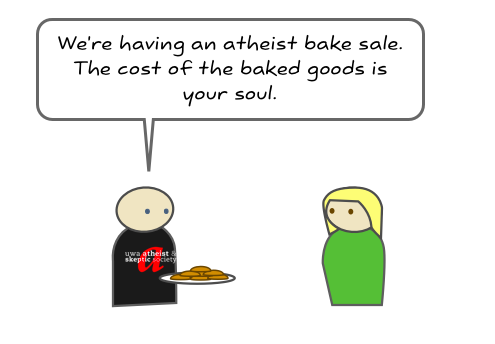
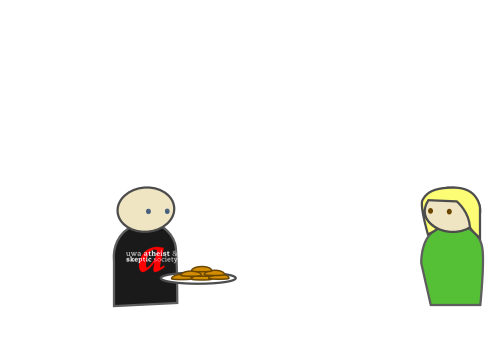
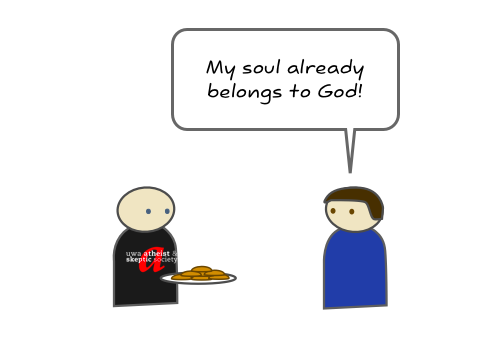
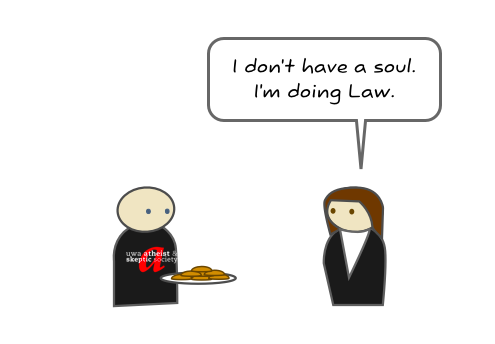
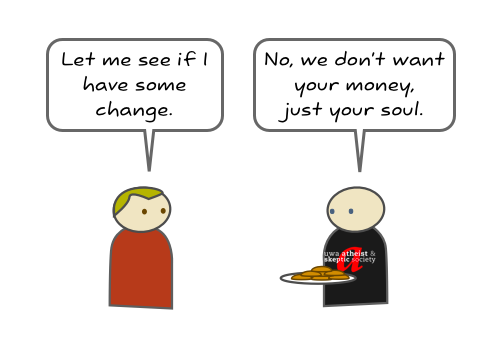

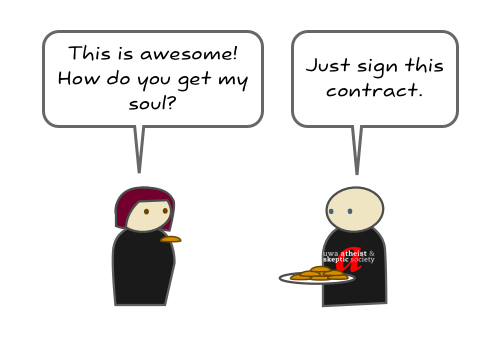
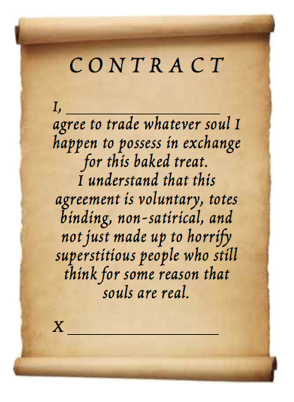
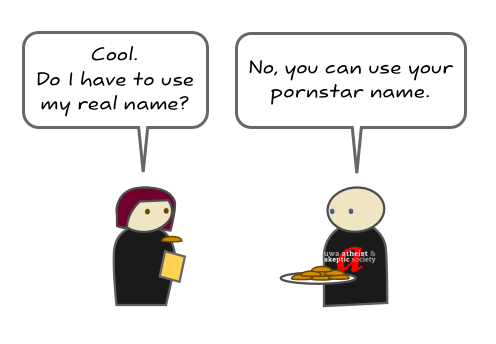
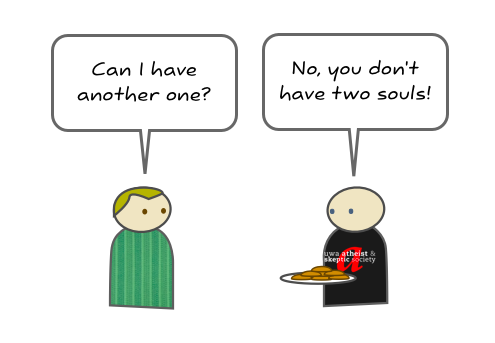

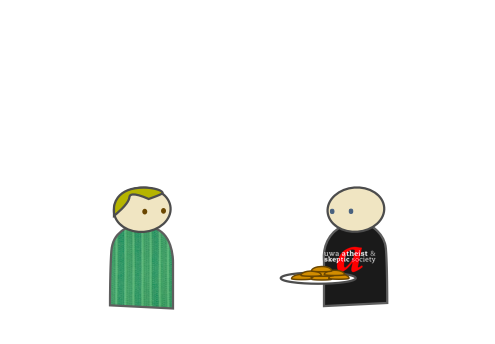
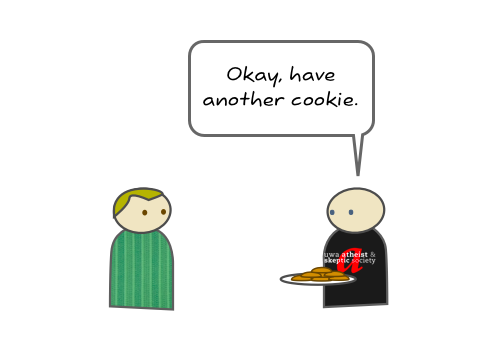
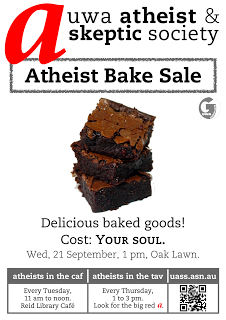



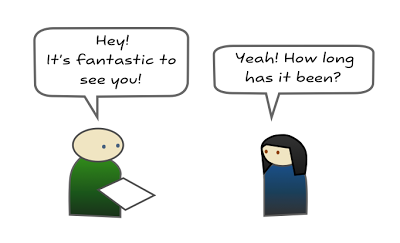

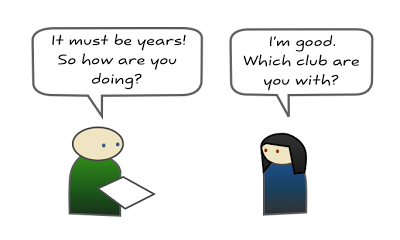
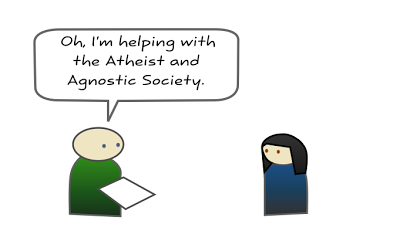

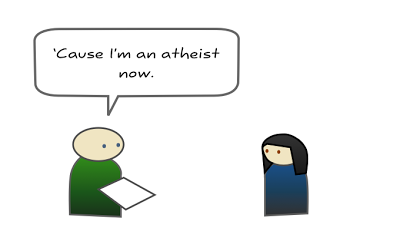


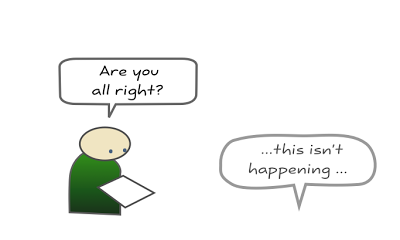




Recent Comments